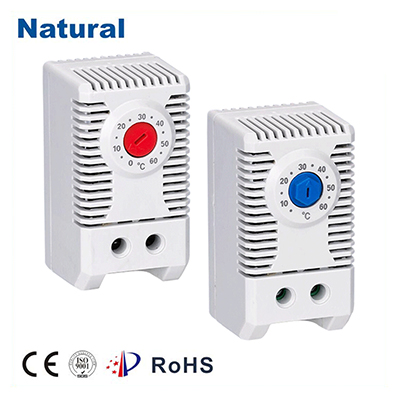Bimetal thermostats are ingenious devices that play a crucial role in regulating temperature across various applications. Combining the principles of thermal expansion with precision engineering, these thermostats offer efficient and reliable temperature control solutions. In this article, we will delve into the workings, advantages, and applications of bimetal thermostats.

Understanding Bimetal Thermostats Bimetal thermostats are composed of two different metals with distinct coefficients of thermal expansion. Typically, these metals are bonded together, forming a strip or coil. When exposed to temperature changes, the metals expand or contract at different rates, causing the strip or coil to bend. This bending action is harnessed to control electrical contacts, thereby regulating temperature. The core principle behind bimetal thermostats is that as temperature rises, the metals bend one way, and as it falls, they bend the other way. This bending motion is used to open or close an electrical circuit, effectively controlling a heating or cooling system. The bending of the bimetallic strip is highly predictable and repeatable, making it ideal for precise temperature control. Advantages of Bimetal Thermostats Accuracy:Bimetal thermostats are known for their accuracy in maintaining a set temperature. Their predictable behavior allows for precise adjustments, crucial in applications such as ovens, refrigerators, and water heaters. Reliability:These thermostats have a long service life due to their simple, mechanical design. They are less prone to wear and tear, ensuring consistent performance over time. Cost-Effective:Bimetal thermostats are cost-effective compared to more complex electronic alternatives. They are an excellent choice for applications where budget constraints are a concern. Versatility:Bimetal thermostats can be tailored to various temperature ranges, making them suitable for a wide range of applications. From industrial processes to household appliances, they find use in diverse settings. Applications of Bimetal Thermostats Household Appliances:Bimetal thermostats are commonly found in appliances like ovens, toasters, and refrigerators. They ensure that these appliances maintain the desired temperature for cooking or preservation. HVAC Systems:Heating, ventilation, and air conditioning (HVAC) systems rely on bimetal thermostats to control the temperature in residential and commercial buildings. Automotive Industry:Bimetal thermostats help regulate engine temperature, preventing overheating and maintaining optimal operating conditions in vehicles. Industrial Processes:These thermostats are used in industrial machinery to control temperature, ensuring the quality and consistency of manufactured products. Medical Devices:Bimetal thermostats play a vital role in medical devices like incubators and sterilizers, where precise temperature control is critical for patient care. Conclusion Bimetal thermostats have stood the test of time as reliable and cost-effective temperature control solutions. Their accuracy, simplicity, and versatility make them indispensable in a wide array of applications, from everyday household appliances to critical industrial processes. Understanding the science behind these devices can help us appreciate their role in maintaining temperature stability in our modern world.